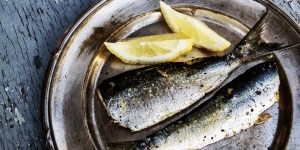Lenten Campaign 2025
This content is free of charge, as are all our articles.
Support us with a donation that is tax-deductible and enable us to continue to reach millions of readers.
You may already know a little bit about how people ate in biblical times. And maybe you've read about what Jesus himself ate. One of the foods that would be on those lists and has stood the test of time throughout Christendom is the pressed fruit of the olive tree -- olive oil.
Olive oil is so esteemed that even the Vatican sings its praises. At a recent gathering of the Pontifical Academy of Sciences in the 16th-century Casina Pio IV, nestled in the Vatican Gardens, scholars and experts discussed the importance of olive oil in salvation history and in Christian culture today.
"It is difficult to find a more timely symbol of hope and justice," said Bishop Marcelo Sánchez Sorondo from Argentina, a philosopher, theologian, and president emeritus of the Academy.
Not only is the olive tree a powerful symbol throughout biblical history, the Messiah -- which means "anointed one" -- is connected to sacred oil, which would have been understood to be olive oil. In fact, the Church's sacred oils today used in sacraments like baptism, confirmation, holy orders, and the sacrament of the sick are usually made with olive oil.
At the conference, Cardinal Giovanni Battista Re said olive oil is a "symbol of the Holy Spirit."
Not only are there symbolic and sacred meanings to olive oil; it has also long been heralded as beneficial to health.
Associated with the Mediterranean diet, olive oil -- particularly extra virgin (EVOO) which is the least processed -- is high in oleic acid and antioxidants and reported to be a nutritious and helpful food. Olive oil is best used raw to top everything from salads to ice cream, but can also be used in baked goods such as cakes and breads, as well as tossed with roasted vegetables or for frying something on low temperature.
Presenters at the Vatican conference pointed out the centrality of olive oil in the Mediterranean diet, which is considered one of the best ways of eating in the world in terms of its health benefits. "Scholars have explained to us that 30 percent of the Mediterranean diet is represented by oil and its benefits in preventing disease," said Bishop Marcelo Sánchez Sorondo at the Vatican conference.
When there is a focus on the cultivation of good olive oil, it has a wide ranging effect as it means you have to consider how to best care for the land, as well as how to process the oil properly to maintain its nutrients. It also invites us to consider and appreciate the many cultural and sacred ways olive oil is used to enhance our lives, whether in sacramental moments or in our domestic churches -- our homes, where we cook and eat with those we love.
So the next time you open a bottle of olive oil (and make sure you're buying the real stuff), give thanks to God for a substance that has revealed His goodness throughout the ages.











